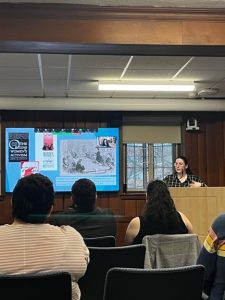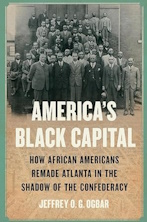Congratulations to Dr. Kathryn Angelica on her successful defense of her dissertation, “An Uneasy Alliance: Cooperation And Conflict In Nineteenth-Century Black And White Women’s Activism.” 
From the abstract: “This project provides a new generational history of women’s activism by demonstrating how the activism(s) of white and Black women intersected and intervened from the 1830s to the turn of the century. It questions how, why, and to what effect white and Black women contributed to interracial organization in the nineteenth century to reveal how cooperation and conflict shaped campaigns for abolition and women’s rights. I argue that we must view the long durée of women’s activism through the lens of compounding generational change. Black women’s activism was inherently abolitionist and feminist. They maintained a commitment to Black uplift, equal opportunity, and community support that often placed them at odds with the goals of white women. Simultaneous to establishing organizations by and for women of color, they persistently entered unwelcoming and exclusionary spaces to demand white activists confront the experiences of African Americans, especially African American women and girls. Attempts to collaborate and communicate, often overlooked or ignored, nonetheless expanded the political and intellectual framework of interracial societies. Black women, in particular, adapted their approaches, forged local and interregional networks, and dedicated time to pass down their ideas and strategies to younger generations. They harnessed grassroots networks to further claims for abolition, suffrage, and unencumbered citizenship. Although the impact of Black women’s activism in this period was uncertain or fleeting, the incremental and compounding effect was the strengthening of activist strategies, mindsets, and networks that would facilitate transformative change in the early twentieth century.”












